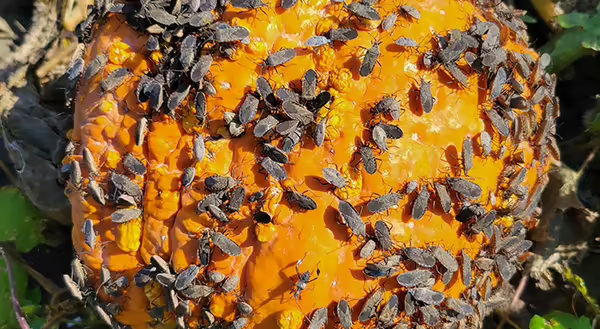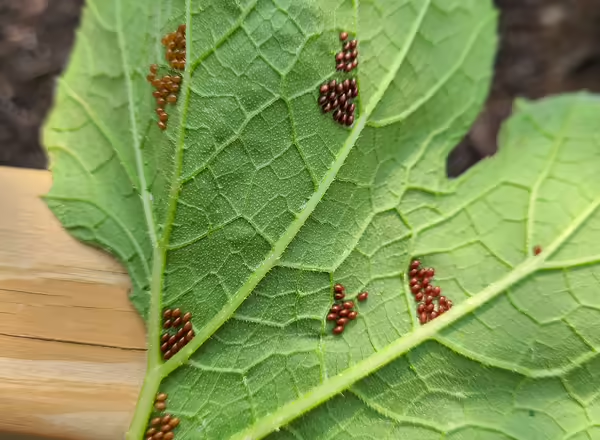
The squash bug is the main pest of pumpkins in Illinois. Squash bugs overwinter as adults and move into pumpkin plantings in June (southern IL) and July (northern IL). They prefer squash and pumpkins compared to cucumbers and melons. In southern Illinois, two generations develop in many years. Adults lay reddish-brown to bronze eggs in small groups on leaves, and those eggs hatch in 7 to 10 days. Immature stages (nymphs) go through 5 stages that take 5 to 6 weeks. The key to controlling squash bugs is to detect their presence early and act immediately. Growers are advised to scout for egg masses (clusters), use a threshold of 1 egg mass per plant, and apply insecticides for squash bug control as soon as nymphs hatch and begin feeding. Scouting for squash bugs should be occurring now. Adults have been seen in central Illinois.
The registered insecticides most effective for squash bug control are Capture® and Brigade®. Other insecticides that provide some control include Asana® and Pounce®, but if growers rely on these insecticides, it is imperative that they make applications when nymphs are small as most insecticides are not effective against large nymphs or adults. Natural pyrethrin will give some control for organic growers, but as noted above, application when nymphs are very small is key to any success. Mechanical removal of eggs may be useful for small scale organic growers.

Biological control may be a promising tool for squash bug control, but not much research has been done on this. Our lab would like to screen squash bug eggs for possible parasitism. If you are growing cucurbits and would like to participate, contact Kacie Athey (kathey@illinois.edu , 217-244-9916). We will be asking people to let us know when they find egg masses and either collect them, or we will come and collect them.